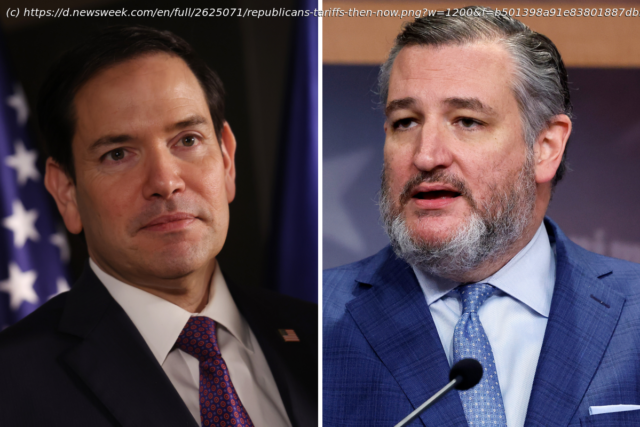Some Republicans have changed their tune on tariffs, while others continue opposing the economic policy.
President Donald Trump has reshaped the Republican Party’s approach to free trade with his support for tariffs on imported goods. Some free marketeers who previously opposed tariffs have moved with him—but others still remain more wary of high tariffs.
China is facing 125 percent tariffs amid a growing trade war with the Trump administration, which economists say could lead to higher prices for U.S. consumers. Earlier in April, he announced so called “reciprocal tariffs” against dozens of countries.
But on Wednesday, Trump put into place a 90-day pause after the stock markets reacted negatively to the new economic policy and as many Americans faced growing concerns about higher prices or a potential recession. Trump touts the tariffs as necessary to close the trade deficit with other countries and restore U.S. manufacturing.
A decade ago, Republicans generally embraced free trade policies and supported deals such as the North American Free Trade Agreement (NAFTA) or the never-passed Trans-Pacific Partnershp (TPP). Factions of the Democratic Party, who received backing from union voters who have shifted toward Republicans, were a bit more inclined to question these policies.
Trump’s tariff policy has shaken up how both parties view tariffs—polls indicate Democrats are increasingly critical of the policy, while Republicans have generally embraced them.
Some prominent Republicans’ views on tariffs have shifted alongside those of the party’s voter base; others, including the most staunch free marketeers in the party, remain opposed to tariffs and have defied Trump in recent days.
Here is a look at how some of the party’s leaders have or have not changed their views on tariffs. Newsweek reached out to each of them for comment.
Paul, a Kentucky Republican, has long been among the most critical Republicans and was one of the four GOP senators who joined Democrats to rebuke Trump’s tariffs against Canada. Earlier in April, he described tariffs as “not only bad economically” but “bad politically”, warning the policy would cost Republicans.
This is on track with his long-standing opposition to tariffs.
“Tariffs are taxes that punish American consumers and producers.






